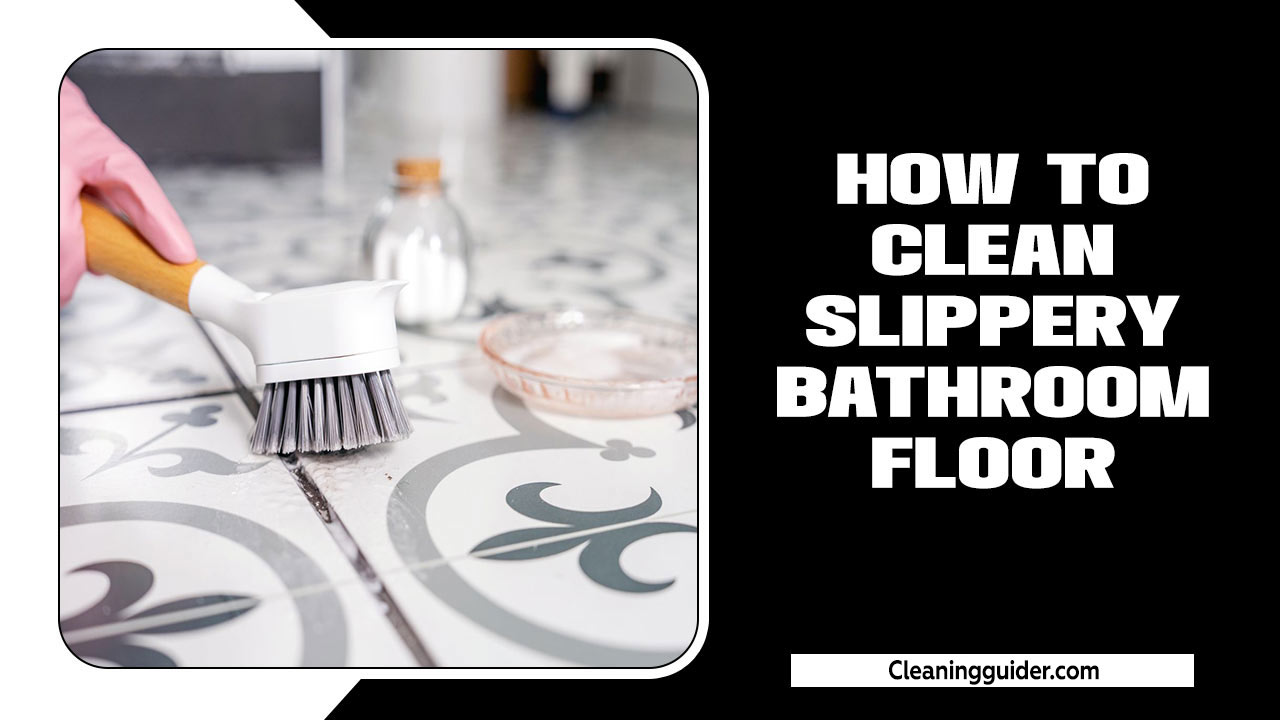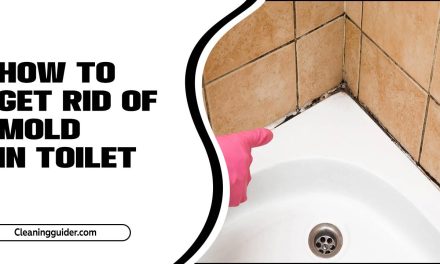Unpleasant odors in the home can not only be a source of embarrassment but also a sign of potential health hazards. One of the most offensive and persistent smells that can linger in a house is that of rotten eggs.
Not only is this odor incredibly unpleasant, but it can also indicate the presence of harmful gases such as hydrogen sulfide and methane. These gases can be produced by decaying organic matter, faulty plumbing, or natural gas leaks. It is crucial to address these smells promptly to ensure the health and safety of those residing in the home.
However, getting rid of the smell of rotten eggs can be daunting, as it often requires identifying and fixing the root cause. House smells like rotten eggs we will discuss the various sources of rotten egg smells in the home and provide effective methods to eliminate them. By following these steps, you can eliminate the offensive odor and create a healthy and fresh-smelling environment for you and your loved ones.
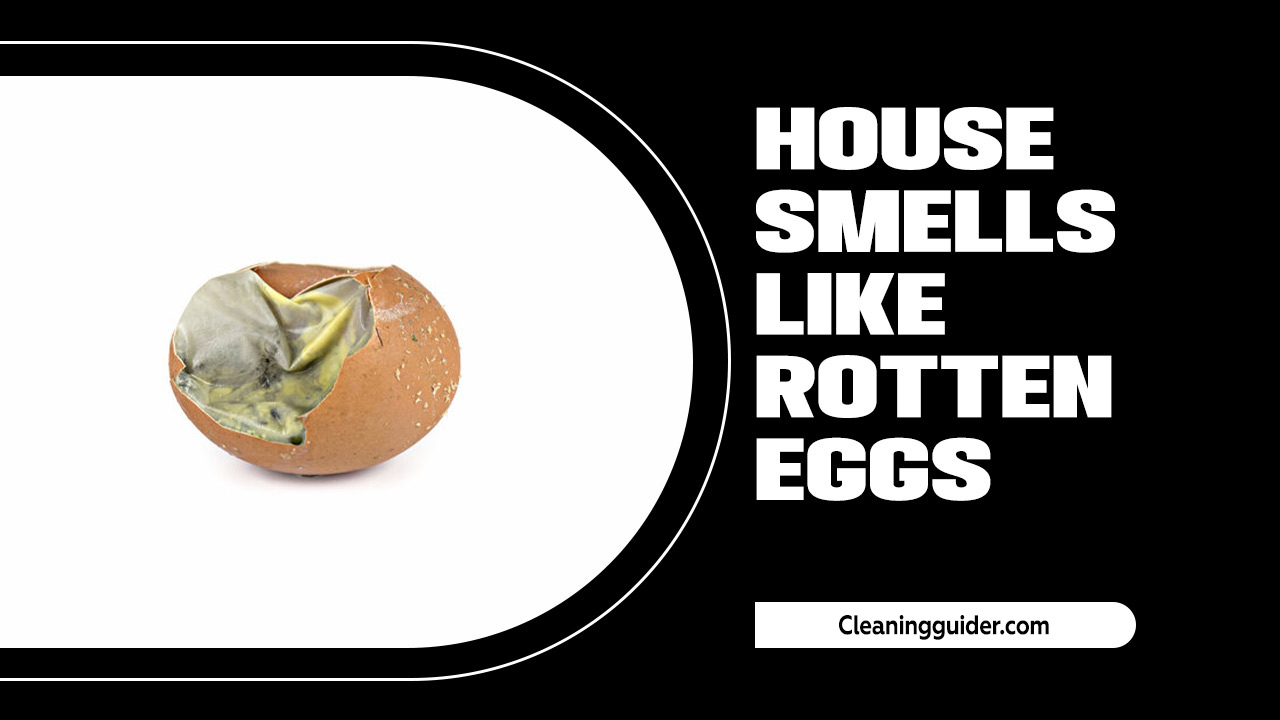
How To Get Rid Of House Smells Like Rotten Eggs? 7 Steps
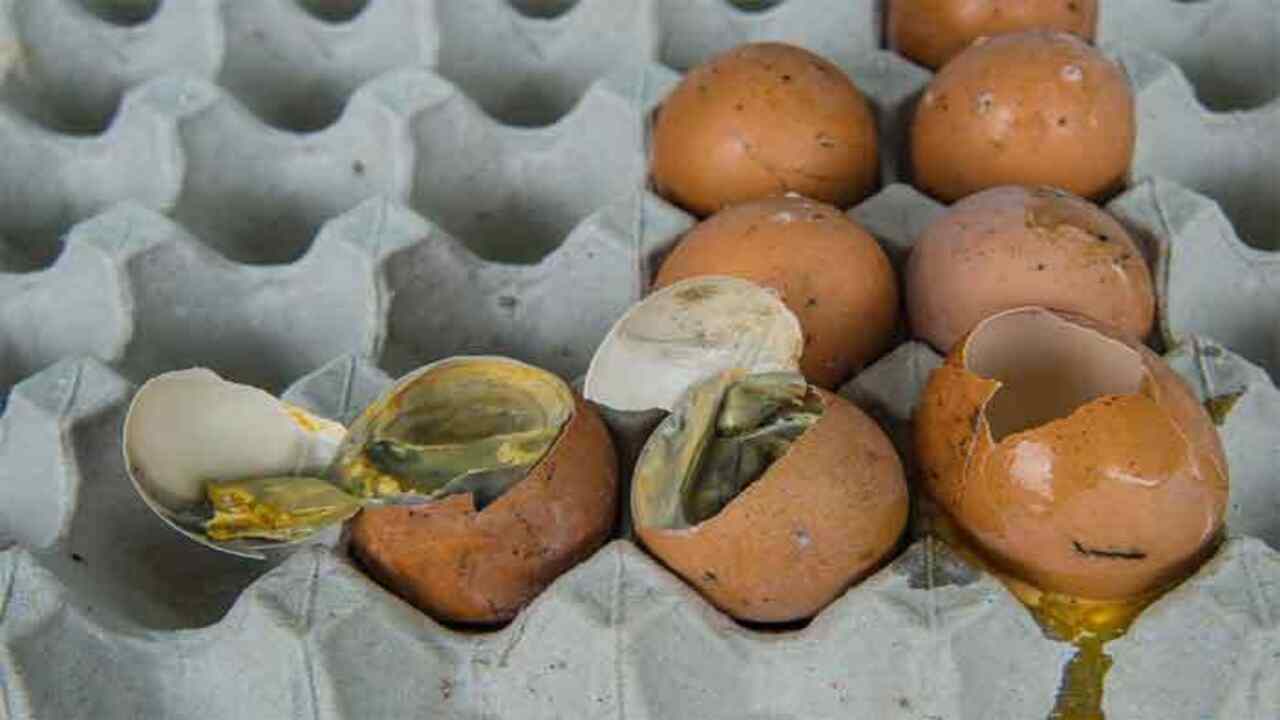
If your house smells like rotten eggs, it’s important to take action to eliminate the odor and address the underlying issue. Following these steps, you can eliminate house-smells like rotten eggs and create a fresh and pleasant living environment. Here are seven steps to help you get rid of the house-smells like rotten eggs:
Step 1:Identify The Source Of The Smell

To get rid of house smells like rotten eggs, use your nose to locate the area with the strong odor. Check common culprits like the bathroom, kitchen, or basement. Look for any signs of mold or water damage that may be causing the smell. Investigate appliances emitting the odor, such as the fridge or HVAC system.
Additionally, consider any recent changes in the household, like new furniture or vegetation. By identifying the source of the odor, whether it’s a dry trap, sewage issue, or plumbing problem, you can take the necessary steps to eliminate the unpleasant smell and prevent any potential health problems.
Step 2:Check For Gas Leaks
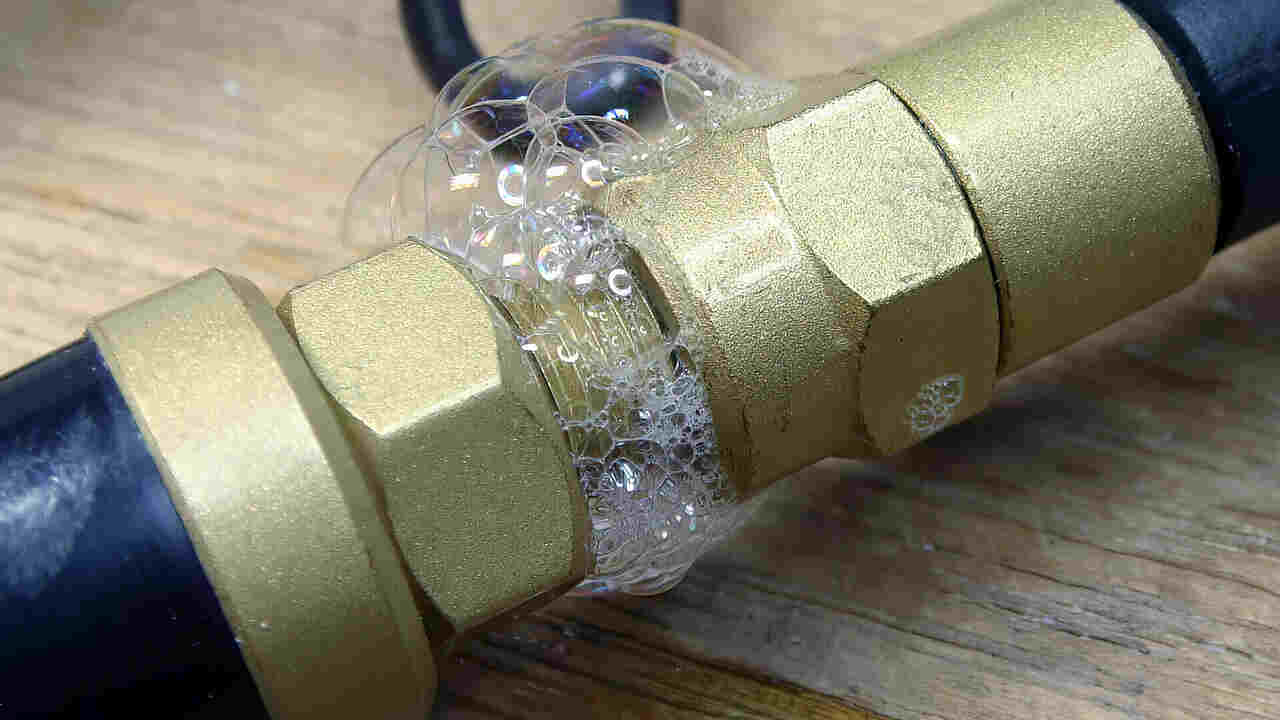
When dealing with a house that smells like rotten eggs, it’s important to take immediate action to ensure your home’s safety and your family’s well-being. The second step in this process is to check for gas leaks. Gas leaks can be extremely dangerous and should not be ignored.
To detect a gas leak, be mindful of warning signs such as hissing sounds or the unmistakable smell of rotten eggs. If you suspect a gas leak, evacuate the premises immediately and contact your local utility company. Avoid using open flames or electrical devices that could ignite a gas leak.
It is also crucial to have a professional plumber inspect your gas lines for any leaks to prevent further health problems and potential disasters. Regularly maintaining your gas-powered appliances, like the water heater, can help prevent leaks and ensure the safety of your home.
Step 3:Clean And Unclog Drains
To effectively eliminate the unpleasant odor of a house smelling like rotten eggs, it’s crucial to clean and unclog drains. An effective method is using a mixture of baking soda and vinegar, which helps break down any debris or buildup causing the foul smell. After applying the solution, flushing the drains with hot water can eradicate any lingering odors completely.
Another option is to use a drain cleaning product designed specifically to eliminate sewer gases. Regularly cleaning drain pipes prevents the accumulation of odors over an extended period. Installing drain traps can also effectively prevent sewer smells from entering your home.
Step 4:Check For Gassy Drywall
Inspecting your drywall is essential in identifying the source of the sulfur smell that makes your house smell like rotten eggs. Look for signs of Chinese drywall, which can emit this unpleasant odor. If you suspect toxic drywall, hiring a professional to conduct testing and confirm your suspicions is crucial.
To eliminate the smell, remove and replace any affected drywall. Proper ventilation during and after construction or renovation work is necessary to mitigate potential health problems associated with exposure to the toxic drywall. Stay vigilant and monitor your health for symptoms related to exposure.
Step 5:Test Well Water
To ensure your well water is free from unpleasant smells, it’s important to test it for hydrogen sulfide gas, which can produce a rotten egg smell. Consider installing a water treatment system targeting sulfur smells to effectively remove the odor. Additionally, regular maintenance and cleaning of your well can prevent odors from developing.
Another option to eliminate unwanted smells is to use activated carbon filters in your well water system. For personalized recommendations and expert advice, it’s always wise to consult a professional water treatment specialist who can assess your situation and provide tailored solutions.
Step 6:Check For Sewer Line Issues
To address potential sewer line issues, it is advisable to enlist the services of a local plumber. They can thoroughly inspect your sewer lines to identify any blockages or leaks. If any damage is found, repairing or replacing the affected pipes promptly is important. Installing sewer line vents or plumbing vents can greatly improve air circulation and help reduce unpleasant odors.
To prevent sewer line issues in the first place, homeowners should avoid flushing non-biodegradable items down the toilet. Regular cleaning and maintenance of your plumbing system are also crucial for preventing various plumbing odors, including those resembling rotten eggs.
Step 7:Remove Actual Rotten Eggs
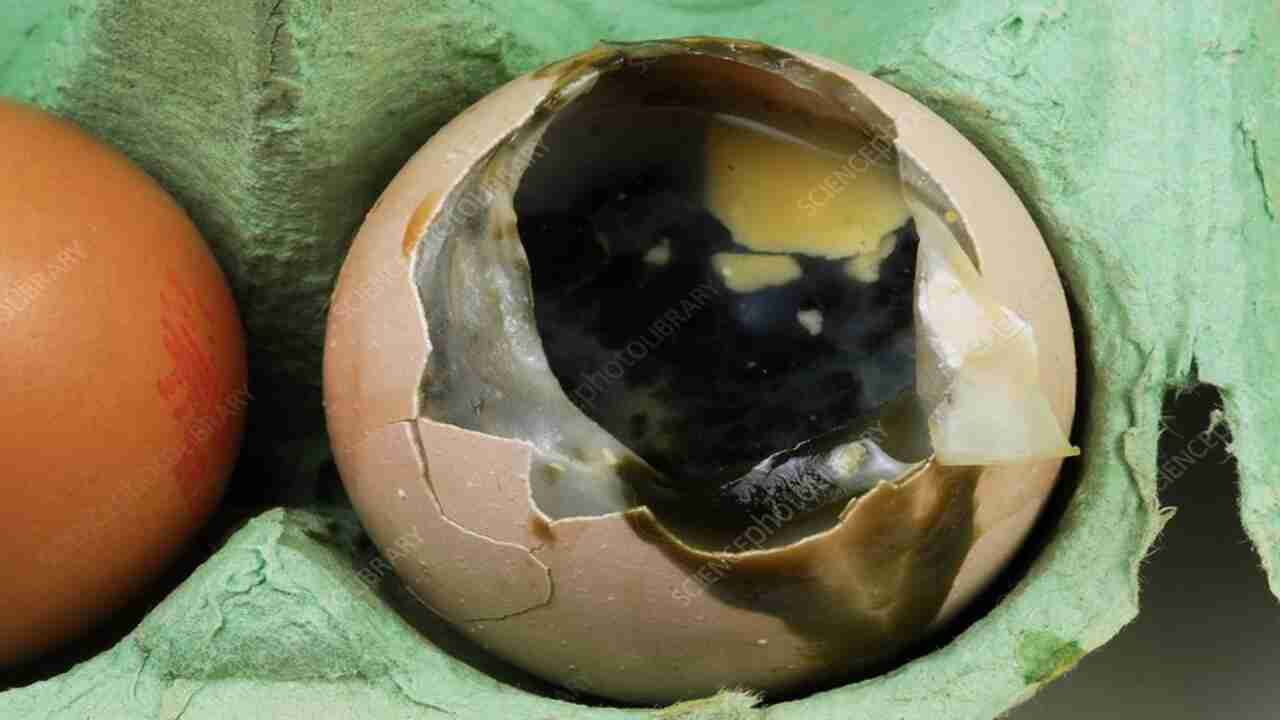
To tackle the house smells like rotten eggs, locating and removing any rotten eggs that may be causing the odor is crucial. Dispose of the eggs properly to prevent further smells from developing. After removing the eggs, cleaning and disinfecting the affected area thoroughly is essential to eliminate any lingering odors.
Ventilate the space by opening windows or using fans to help dissipate the smell effectively. Additionally, consider using odor-absorbing products or air fresheners to mask any remaining odors. By following these steps, you can successfully eliminate the unpleasant smell and restore your home’s fresh and clean environment.
Tips For Preventing Rotten Egg Odors In The Home

Nobody wants their house to smell like rotten eggs. Not only is it unpleasant, but it can also be a sign of a potentially dangerous issue. Following these tips ensures that your home smells fresh and pleasant without lingering rotten egg odors. Here are some tips for preventing rotten egg odors in your home:
- Check Your Plumbing: Rotten egg odors can sometimes be caused by sulfur bacteria in your plumbing system. Ensure there are no leaks or issues with your pipes that could allow bacteria to grow.
- Keep Drains Clean: Regularly clean and maintain your drains to prevent the buildup of organic matter that can produce foul odors. Use drain cleaners or natural solutions like baking soda and vinegar to keep your drains fresh.
- Ventilate Properly: Adequate ventilation prevents stagnant air and moisture buildup, which can contribute to unpleasant smells. Open windows, use exhaust fans, and consider using an air purifier to keep the air fresh.
- Clean Regularly: Regular cleaning is essential for a fresh-smelling home. Pay attention to areas like garbage cans, refrigerators, and bathrooms where odors can easily accumulate.
- Address Any Gas Leaks: If the rotten egg smell persists even after trying these tips, it could be a sign of a gas leak. To make it detectable, gas companies add a distinctive odorant called mercaptan to natural gas. If you suspect a gas leak, evacuate your home immediately and contact your gas provider.
Home Remedies For Getting Rid Of House Smells Like Rotten Eggs

If your house smells like rotten eggs, you can try several home remedies to get rid of the unpleasant odor. One effective method is to place bowls of white vinegar around your home, as vinegar is known for absorbing and neutralizing odors.
Another option is to sprinkle baking soda on carpets, rugs, or upholstery, let it sit for a few hours, and then vacuum it up. Baking soda is a natural deodorizer that can help eliminate foul smells. Additionally, boil a pot of water with lemon slices or add a few drops of essential oils to diffusers or cotton balls placed strategically throughout your house. These remedies can help freshen up your home and make it smell clean and inviting.
Conclusion
To sum up, house smells like rotten eggs can be unpleasant and even indicate potential health hazards. It is essential to identify the source of the odor and take necessary actions to eliminate it. From checking for gas leaks to cleaning drains and addressing sewer line issues, following a step-by-step process can help eliminate the smell effectively.
Additionally, preventive measures such as proper ventilation, regular maintenance, and home remedies like baking soda and vinegar can help keep your home smelling fresh. If the smell persists, it is always best to consult a professional for further assistance. Following these steps ensures your home is free of unpleasant odors and maintains a fresh and inviting atmosphere.
Frequently Asked Questions
1.Should I Be Worried If My House Smells Like Rotten Eggs?
Ans: If your house smells like rotten eggs, it’s a cause for concern. This odor may indicate a gas leak, as natural gas is odorless, but an additive called mercaptan gives it a distinctive smell. Leave the area immediately and contact your gas company or emergency services if you suspect a gas leak. Regular maintenance of gas appliances and detectors can help prevent potential leaks and associated odors.
2.Does Carbon Monoxide Smell Like Rotten Eggs?
Ans: No, carbon monoxide does not have a smell similar to rotten eggs. Unlike natural gas, which can have this odor, carbon monoxide is an odorless gas that can be deadly if inhaled in high concentrations. It’s crucial to have carbon monoxide detectors installed for safety.
3.How Do I Get Rid Of Sewer Gas Smell In My House?
Ans: To eliminate the sewer gas smell in your house, start by locating the source of the odor, such as a dried-out P-trap or damaged sewer line. Ensure all drains are filled with water by pouring some down each one. Clean drains with vinegar and baking soda to kill bacteria causing the smell. If the issue persists, contact a plumber for professional repair.
4.Why Does The AC Smell Like Rotten Eggs?
Ans: Possible content:
The AC may emit a rotten egg smell due to a gas leak from the refrigerant or the presence of bacteria in the system. It is crucial to have the AC inspected by a professional to ensure safety. Regular maintenance can prevent such odors.
5.Why Does My Home Smell Like Rotten Eggs?
Ans: There are several possible causes for a rotten egg smell in your home, such as gas leaks or plumbing issues. If you suspect a gas leak, evacuate immediately and call emergency services. Sewer gas could also be the culprit, indicating a plumbing problem. Regular cleaning and proper ventilation can help prevent unpleasant odors at home.


